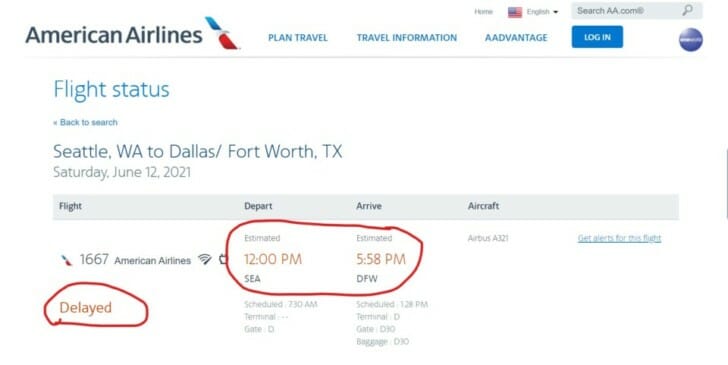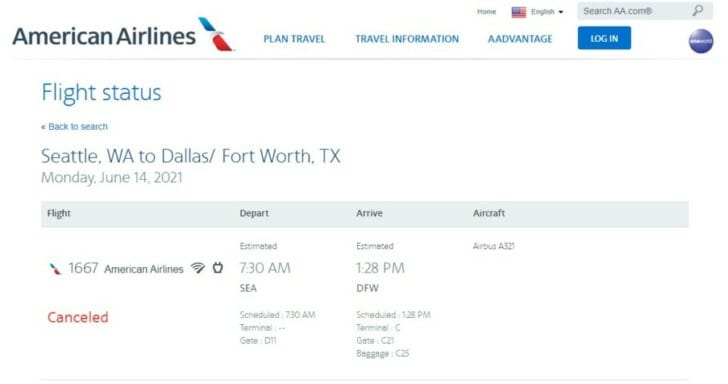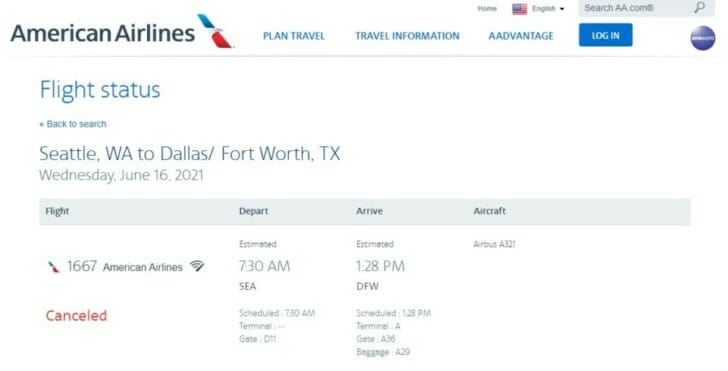Shelly and I are experienced world travelers and one thing that we know is that if something can go wrong with a flight, it probably will. When things have gone wrong or heading in that direction, there are two kinds of travelers:
- The proactive traveler looks for potential trouble and works to mitigate them early,
- The reactive traveler waits until the airline figures out what is happening and makes an announcement.
We are headed to Switzerland on Tuesday and we have a complicated series of flights. We are flying first class on miles from the Alaska Airlines Mileage Plan. When you redeem miles for a long flight to international destinations, you are not the master of your own destiny. You will take whatever itinerary that the award airline will allow you to redeem.
I am working on Plan B and this time, Plan B has nothing to do with Covid-19. It is about the mechanics of airline scheduling and performance.
The Challenge
Our trip to Zurich Switzerland consists of four legs. Believe me, this wasn’t my idea, this was the routing available through the airline’s booking engine for this award redemption:
- June 21 – AS 2053, Portland OR to Seattle WA
- June 22 – AA 1667, Seattle WA to Dallas TX
- June 22 – AA 50, Dallas TX to London Heathrow
- June 23 – BA 712, London Heathrow to Zurich

Making The Connections
We have a series of dependent connections. In other words, flight #2 is dependent on flight #1 arriving on time or close to it. There has to be enough time for passengers and their baggage to make the connecting flight. Minimum connection times are crucial, I wrote a guide to understand minimum connection times and why they matter. You can read that article here.
Like a concert orchestra playing a complicated piece of music, all of the instruments have to play in queue. Like the orchestra, the succeeding flights are dependent on their predecessor flights. Airlines will not book connecting flights that don’t meet minimum connection times. While that may seem good in theory, the reality of flights may fail to make a connecting flight.
This Is What Is Keeping Me Up At Night
My proactivity started last Saturday. My area of concern is the relationship between AA 1667 and AA 50. Even though, the connection at DFW more than meets the minimum connection time, the performance of AA 1667 would suggest otherwise. Here is what I have seen so far:
- Saturday, June 12 – AA 1667 departed Seattle five hours late
- Sunday, June 13 – AA 1667 departed Seattle five minutes late
- Monday, June 14 – AA 1667 was canceled
- Tuesday, June 15 – AA 1667 departed Seattle one minute early
- Wednesday, June 16 – AA 1667 was canceled
Three of these days would have prevented me from making my connecting flight to London. I would also miss my connection to Zurich. This is not looking good.



Plan B
The first thing that I looked for was an earlier flight from Seattle. American Airlines operates flight 2748 and there are first class seats available for June 22nd. I called American Airlines to see if I could make the change to this earlier flight. I ran into two problems:
- The flights on American Airlines are “married flight segments”
- American Airlines didn’t issue the ticket, it was issued by Alaska Airlines. American Airlines couldn’t make a change on a ticket they didn’t sell.
Now I have a new dilemma, American does not want to make the changes. When you book an itinerary consisting of multiple segments, they are sold as married segments. When you want to change one flight, you have to essentially rebook the whole married segment itinerary. If the cost is higher or in a different fare class, the airline could completely reprice the trip.
American Airlines didn’t sell me the ticket, they told me to call Alaska Airlines. When I called Alaska Airlines, they had the same story about the married segments. They suggested that after I land in Seattle and the Alaska segments have concluded, I should ask at the American Airlines ticket counter to make a “same-day change”. This may work and I will try it.
Plan C
When you miss a connection because of an airline delay, you are supposed to go into “reprotection”. Reprotection is when the airline is now obligated to get you to your destination (even on another carrier) within reasonable dispatch. Reprotection can be initiated as soon as 30 minutes after the problem occurs. Reasonable dispatch means as soon as practical. It would not be reasonable for the airline to get you to your destination a week later.
I am preparing for the possibility of Plan C. My options are one and this is it:

![]()
If I miss AA 50, this is the only way that I can get to Zurich by June 23rd. I have my plan together if I need to go to plan C. If American has to re-accommodate me, I already have the flights identified.
Final Thoughts
I’m still nervous about getting to Zurich on time. My itinerary has three dependencies and the biggest issue is the performance of American Airlines flight 1667. I have my game plan ready to avoid trouble. Since I can’t attempt Plan B in advance, I will attempt to have American Airlines make a same-day flight change when I land in Seattle. We’ll see how that goes.
Meanwhile, I have my fingers crossed and I am hoping for the best, to land in Zurich on time.

